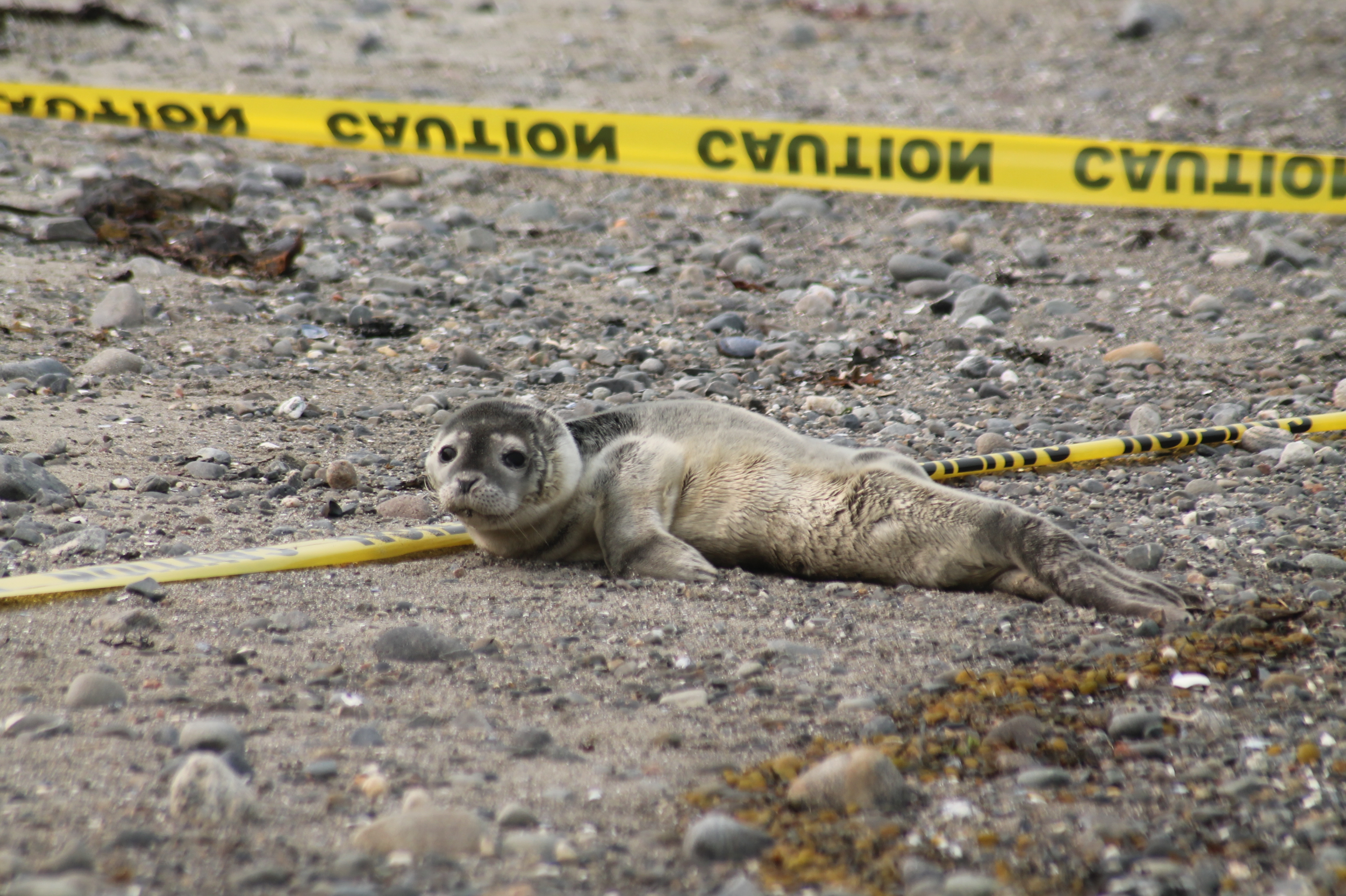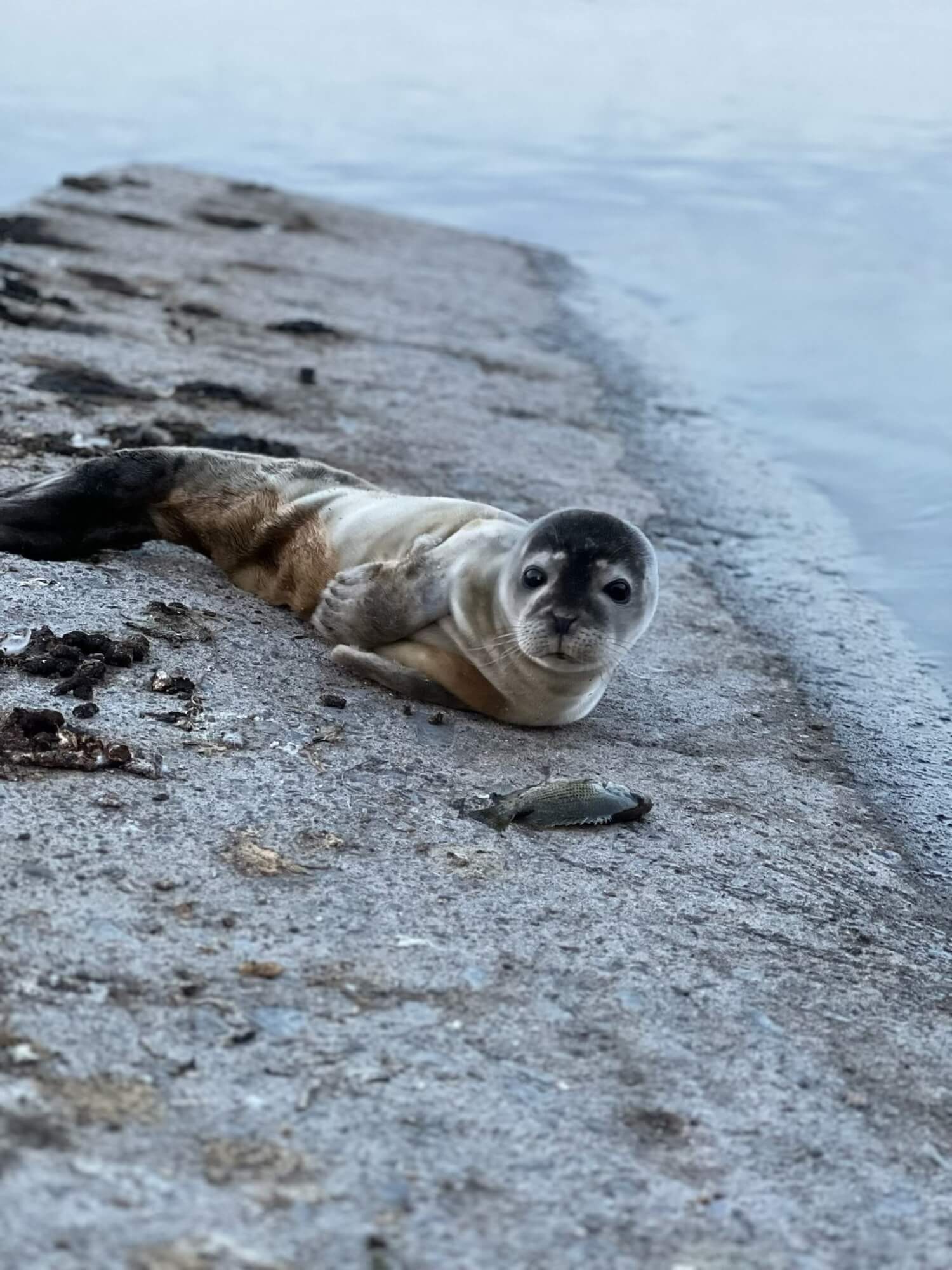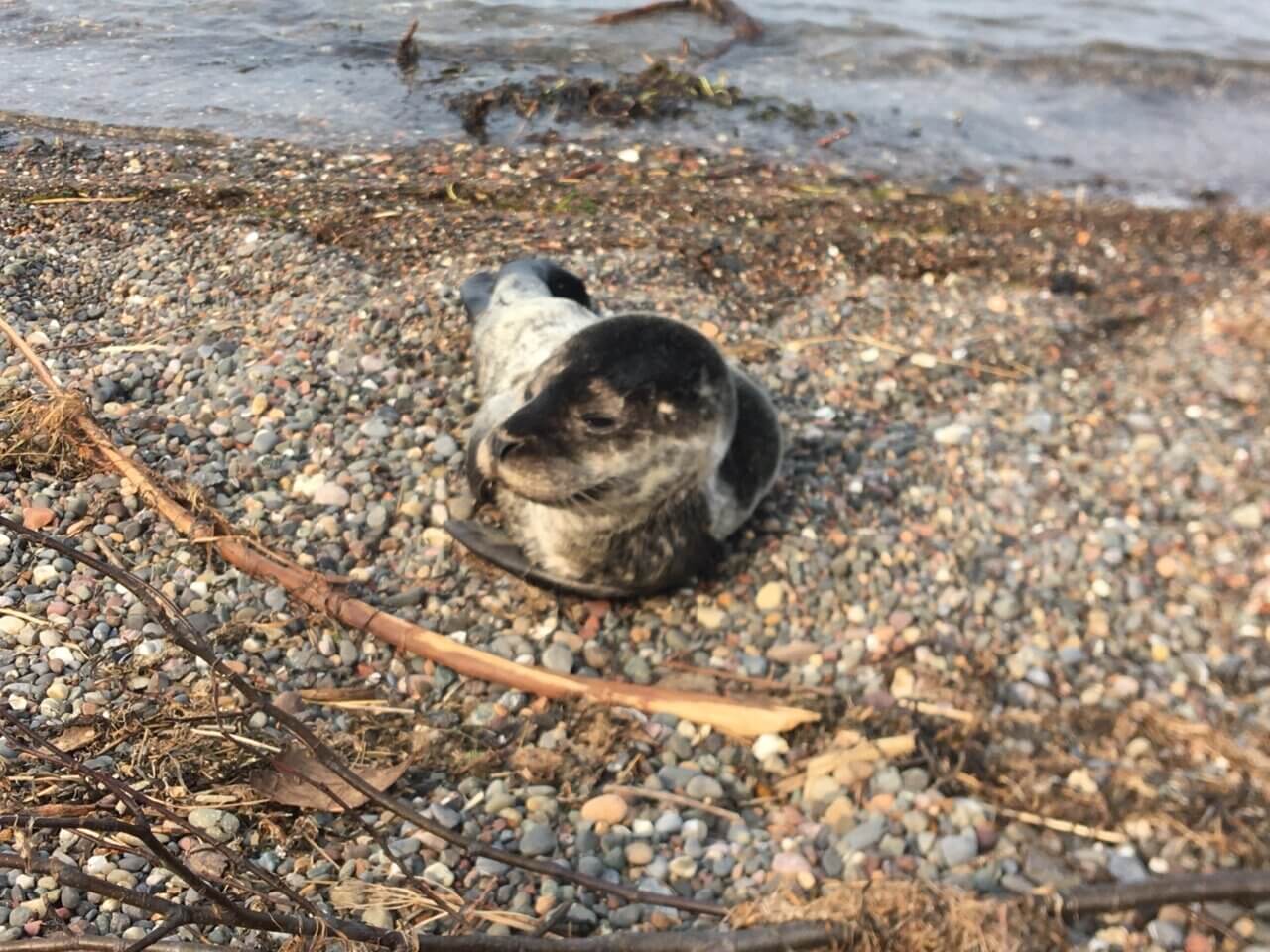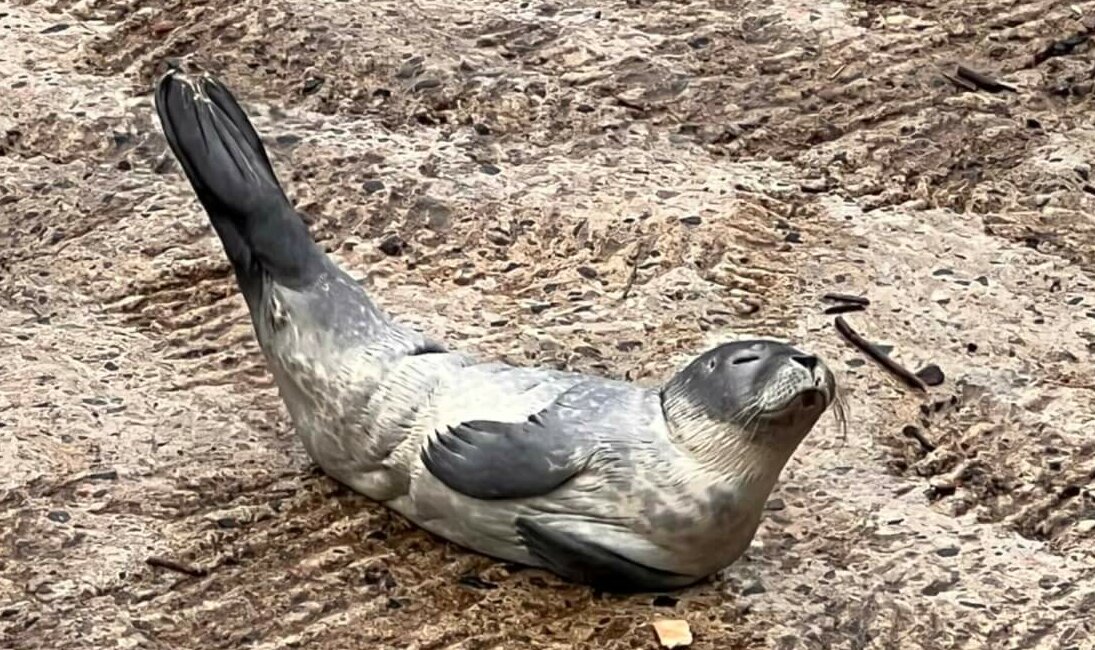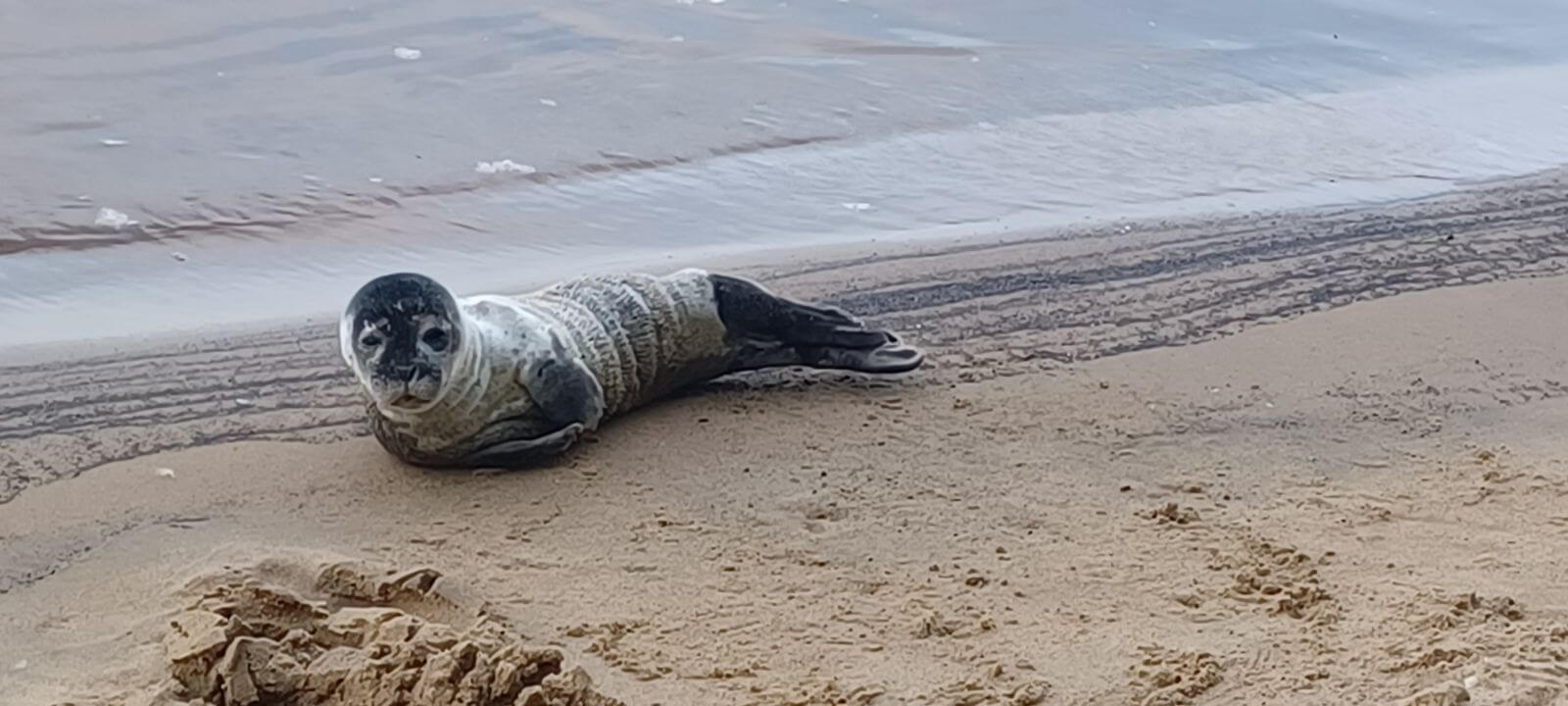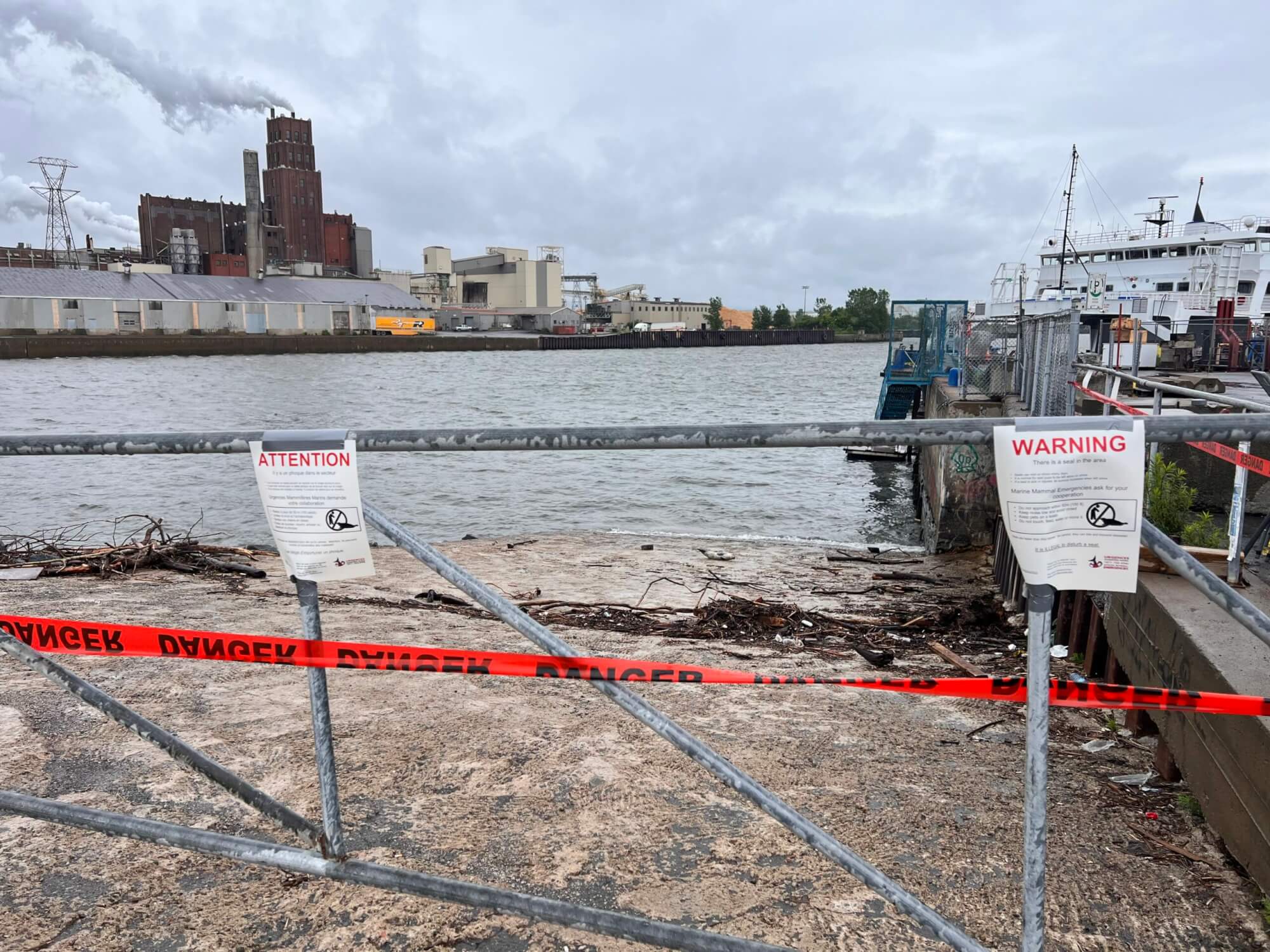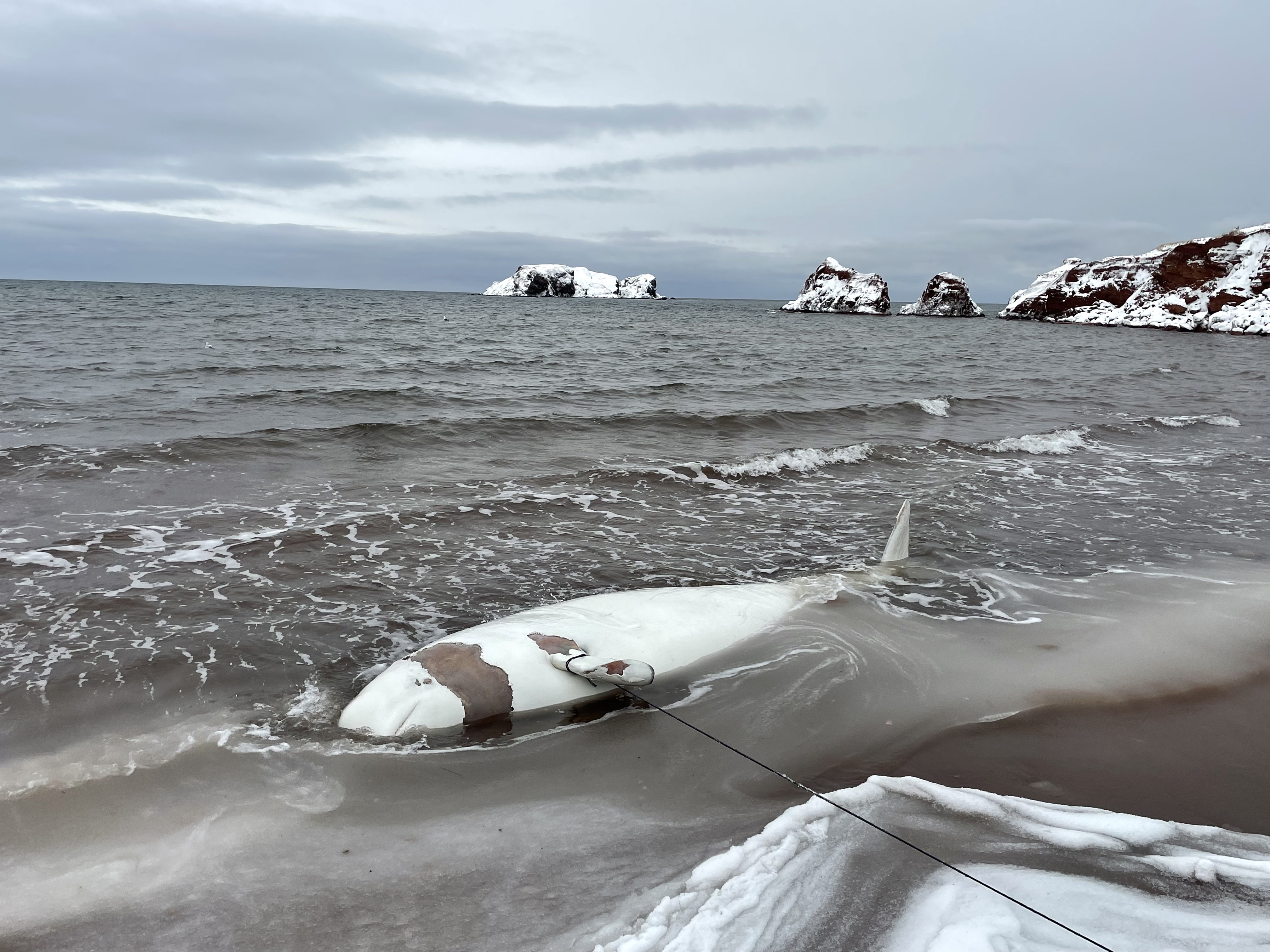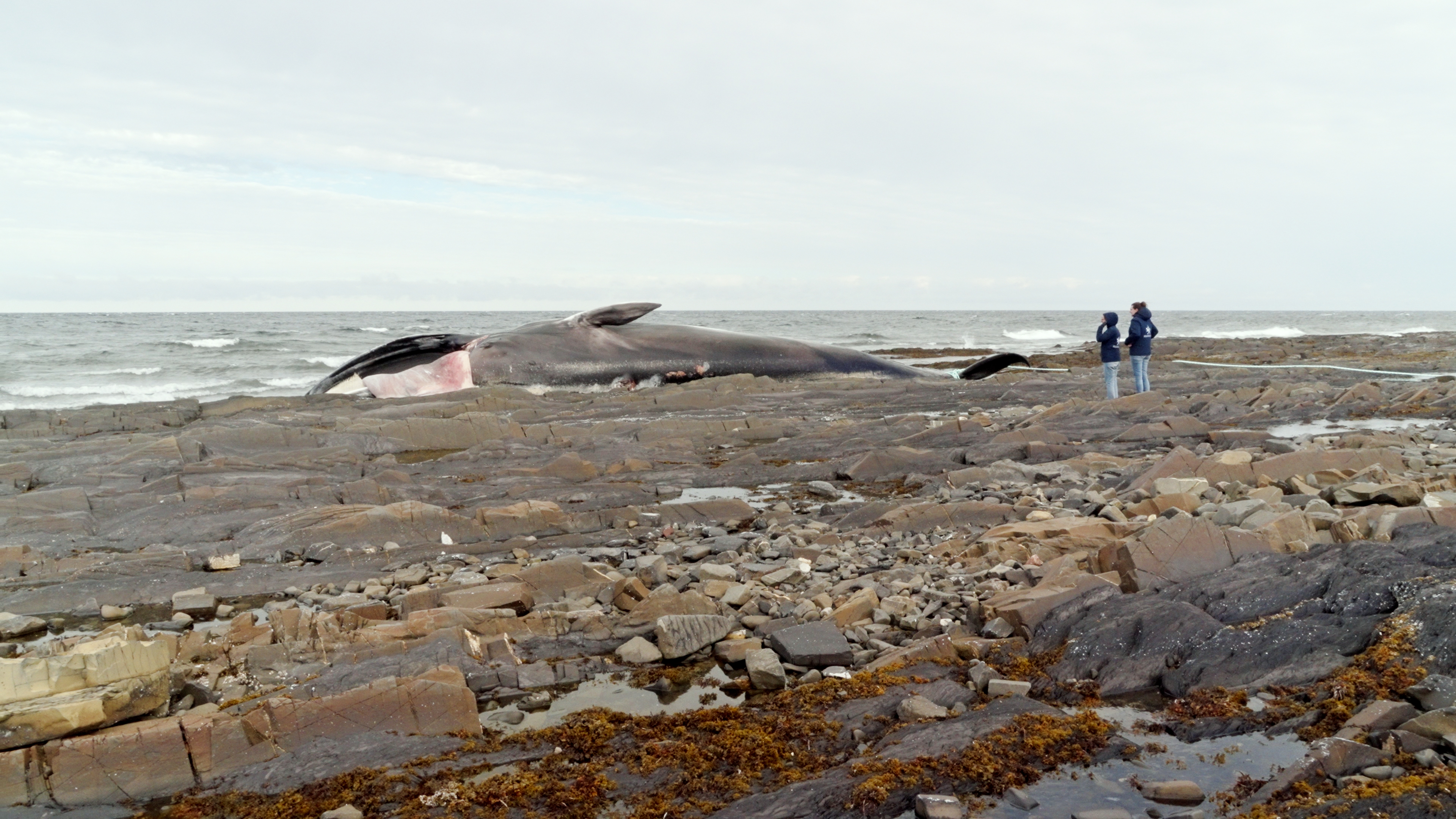Although they are marine mammals, pinnipeds carry out a number of their most important activities out of water. Indeed, napping, moulting, mating and pupping are all done on dry land.
What are the best practices to adopt when observing a seal?
- Observe from afar; keep your distance (at least 100 metres) so that the seal can rest and move about freely.
- Report its presence to the QMMERN at 1-877-722-5346. The Network will then follow up on the case.
- It is normal to see seals out of the water. Do not attempt to coax it back into the water or spray it; this is not necessary.
- It is unlawful to handle a seal, force it back into the water or interact with it in any way.
- Do not attempt to feed it. Its survival depends on its ability to feed itself and capture fresh prey.
- If you are on board a boat, be extra cautious to avoid colliding with or approaching the seal.
- Caution! A seal is capable of moving quickly and can be unpredictable. This powerful wild animal can bite and transmit disease.
- Keep dogs on a leash. A free-roaming canine might approach the seal, increasing the the animal’s stress levels and provoking aggressive reactions that might cause injury to the seal or your pet. Seals and dogs can also spread disease.
When should I call the Quebec Marine Mammal Emergency Response Network (QMMERN) at 1-877-722-5346?
- If you see a seal with obvious signs of injury;
- If people are handling or attempting to interact with the seal;
- If the seal is showing aggressive behaviour toward the public.
With a detailed description of the situation and assistance from a volunteer, the call centre team can request the collaboration of local responders to enforce the law (which prohibits handling a marine mammal) and thereby help ensure public safety. A veterinarian could also be called upon to assess the animal’s state of health and decide to intervene if he or she feels it is necessary.
Alone pups are not necessarily abandoned
The pupping (or whelping) season for harbour seals runs from May to June. The mothers then nurse their young for 4 to 6 weeks. During this period, the mother must often leave her young to go feed. A pup may therefore find itself alone for several hours or even a few days. It is important not to disturb or come into contact with the youngster! Regulations stipulate that a minimum distance of 100 m be maintained.
Human presence might discourage the mother from returning to her pup, thereby increasing the risk of abandonment. A pup is unlikely to survive without its mother, as it depends on her milk for nourishment and building its immune system. Additionally, the stress caused by multiple approaches and the energy expenditure associated with the young animal being on the defensive can in some cases prove fatal.
What about seals in urban areas or outside their normal habitat?
Although sightings of seals in urban areas are infrequent, they do occasional stray outside their usual range. Several species of seals frequent the St. Lawrence, and it sometimes happens that certain individuals, often young ones, venture farther up the St. Lawrence or even into its tributaries. Some species adapt quite well in fresh water, but, as they are in a different environment to what they are used to, it is important to adopt good cohabitation practices with these individuals.


